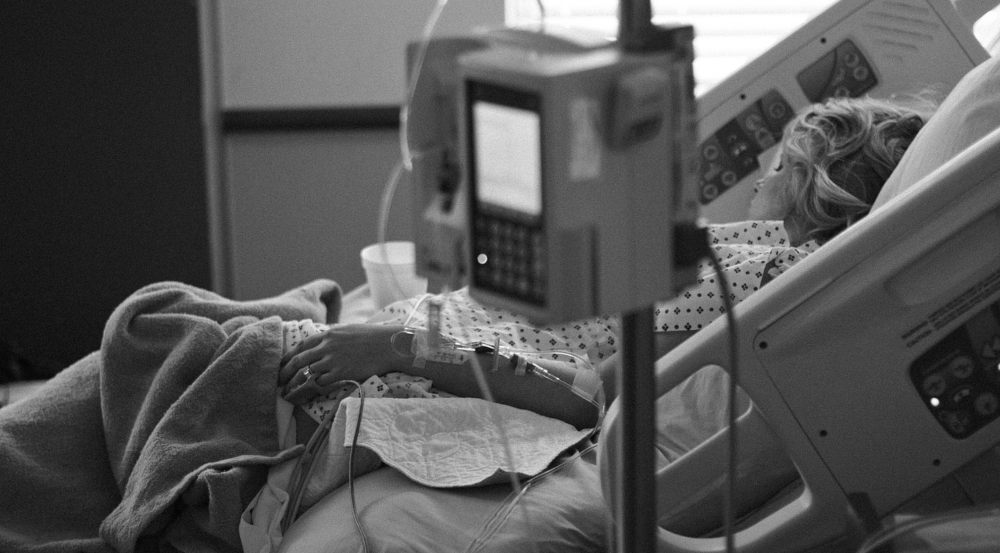
I heard a story at church yesterday, a true story. I can’t stop thinking about it.
Two men came to the Wallowa County Memorial Hospital in Enterprise, Oregon. Both had COVD. Both were seriously ill. Both needed the kind of care that was available only in an Intensive Care Unit. In that unit there was only one available bed.
One of the men was 84 years old. He had several other serious health conditions besides COVID, including cancer. He had been the Superintendent of Schools in Enterprise, back in an era when a person in such a position was accorded respect and might enjoy a long tenure — as he apparently did. But he had also earned that respect by his leadership and positive influence in the lives of many people. He was a longtime member of the church where I happened to be preaching. Many in the congregation had attended his funeral the day before, which was held at a large community hall.
I know little about the second man, except that he is 36 years old. He was unvaccinated when he contracted COVID, and he was very seriously ill. Why he was unvaccinated, I do not know.
Confronted with this dilemma the older man chose to go home, not to seek hospital care or the one remaining bed in the hospital’s ICU. He felt the younger man should have it. At home, the older man died. The younger man is slowly regaining health.
Since hearing this story many questions have occurred to me. One of those questions is how many times has something similar to this taken place in the last several months in, say, the U.S.? A score, a hundred, several hundred, thousands? My bet would be on the latter. Particularly here in the Northwest where regional hospitals have been overwhelmed by the number of sick people in Idaho. Idaho is a state where the Governor has opposed mask and vaccine mandates, and the vaccination rate is quite low.
A variation on this situation or scenario are those who find a planned surgery delayed because the hospital is overwhelmed with COVID cases.
I also wonder, assuming the 36-year-old knew of the older man and his decision, how he — the younger man — reacted? Did he blow it off? “He was going to die anyhow . . . he was old.” Or did he, does he, feel some sense of indebtedness, a sense that his life is no longer just, or entirely, his own? I have no idea how he has reacted, but I wonder.
What was the right thing to do in this situation? Should the 36-year-old have lived with the consequences of the choice he had made to not be vaccinated, assuming he had made that choice? Was the 84-year-old right to cede the ICU spot to the younger and, prior to COVID, healthier man?
Did the older man’s Christian faith influence his decision? I recall Paul’s words in Philippians about Jesus Christ, “who though he was in the form of God, did not regard equality with God a thing to be grasped, but emptied himself, taking the form of a slave . . . and became obedient to the point of death — even death on a cross.” (Philippians 2).
Was the older man’s choice in some sense an act of forgiveness for the younger man if he chose not to be vaccinated or take pre-cautions?
In the older man’s spot, what decision would I have made?
Finally, there is this insightful response from reader Mary McWilliams:
“I would like to suggest one other consideration that may also have figured in the former superintendent’s decision to go home rather than take the ICU bed. He may have also concluded that intensive care would likely be futile and a frankly horrific medical experience that would rob him of the presence of his loved ones. He may have made the better decision for him as well as for the younger patient. Surely there were several factors figuring in his decision.
“I am bringing my own bias to the dilemma. While there have been advances in the treatment of COVID, including in the hospital, the prospect of being on a ventilator and sedated with the associated delirium and separated from family would make me think very seriously about that treatment.”
Discover more from Post Alley
Subscribe to get the latest posts sent to your email.
